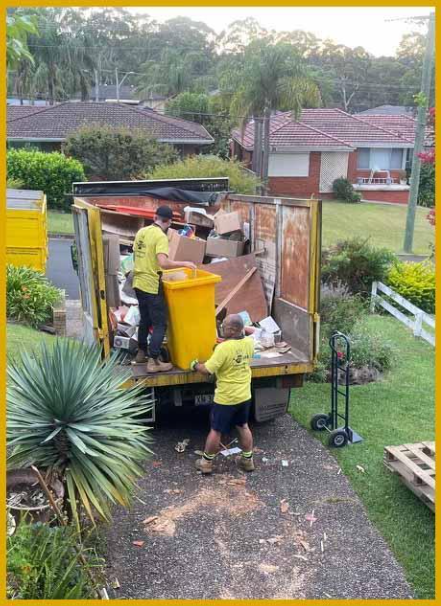
Property management isn’t just about collecting rent and fixing leaky faucets—it’s about creating systems that protect your property, simplify turnover, and reduce headaches. That’s why more property managers are revisiting their lease agreements and including new clauses to address lingering challenges—especially junk removal.
From abandoned furniture to piles of trash left behind by tenants, leftover junk is more than just a nuisance. It can delay new move-ins, cost thousands in cleanup, and even create liability risks. Today, let’s explore the top reasons property managers should include junk removal in lease agreements, and how this simple clause can create a smoother, more efficient rental process.
The Growing Junk Problem in Property Management
Turnover is inevitable in rental properties—but the mess tenants leave behind shouldn’t be.
Whether managing a single-family rental or a multi-unit complex, property managers often face mountains of unwanted items after tenants vacate. Old mattresses, broken appliances, and mystery boxes in garages or basements aren’t just annoying—they can:
- Delay unit readiness for new tenants
- Result in extra labor or disposal costs
- Lead to pest infestations or local code violations
- Damage property reputation and online reviews
A 2023 report by the National Apartment Association found that abandoned property is one of the top challenges facing landlords during turnovers, especially in urban and suburban settings where city disposal limits apply. These issues add stress and expenses that could otherwise be avoided.
Why Lease Agreements Matter More Than Ever
A lease agreement is your legal framework—it defines rights, responsibilities, and boundaries. However, many older or boilerplate leases don’t address junk removal at all. This oversight can lead to legal ambiguity. For example:
- Can the landlord legally discard items left after move-out?
- Is there a grace period for tenants to retrieve belongings?
- Who pays for large-item disposal?
Without clarity, property managers often foot the bill—or get stuck in disputes. Adding a simple junk removal clause helps close this loophole.
Strategic Junk Removal Considerations in Rental Property Management
There are many advantages to clearly defining junk removal policies in lease agreements. Exploring strategic junk removal considerations in rental property management can help prevent issues before they arise.
A clear policy promotes accountability, streamlines operations, and protects your bottom line. When tenants know upfront they’ll be held responsible for leaving the unit clean and junk-free, they’re more likely to plan accordingly. This leads to:
Faster Turnaround Between Tenants
Every day a unit sits vacant is money lost. With a junk removal policy in place, you’re less likely to encounter unexpected cleanup needs that delay re-listing and occupancy.
Cost Recovery
Junk hauling can be expensive, especially for bulky items or volume pickups. When lease terms spell out tenant responsibility for post-move-out debris, landlords can recoup costs or deduct from security deposits more confidently.
Legal Protection
Disputes over abandoned property can get messy—fast. Having a signed agreement that outlines junk removal expectations helps protect you from claims of wrongful disposal or withheld deposits.
Property Preservation
Leftover junk isn’t just unsightly. It can attract pests, damage flooring or walls, and create fire hazards. A proactive clause helps maintain the value and safety of your investment.
Professional Image
Well-maintained, clutter-free properties show better and rent faster. A consistent junk removal policy keeps your brand strong in a competitive rental market.
What Should a Junk Removal Clause Include?
To be effective, a junk removal clause should be:
- Clear: Spell out what constitutes “junk,” what must be removed, and by when.
- Fair: Provide a reasonable timeframe for tenants to retrieve items, such as 24–48 hours after move-out.
- Enforceable: Detail the consequences of noncompliance, including potential charges or forfeiture of the security deposit.
Sample Clause
“Tenant agrees to remove all personal property and dispose of unwanted items prior to vacating the premises. Any items left behind may be removed and disposed of by the landlord at the tenant’s expense. Associated costs may be deducted from the tenant’s security deposit.”
Consult your attorney or local housing authority to tailor language to your state or municipality. For example, HUD guidelines emphasize tenant rights during evictions and move-outs—important to balance with property protection.
Collaborating with Junk Removal Professionals
Even with lease clauses in place, situations may arise where tenants abandon items and disappear. This is where professional junk removal companies become essential partners for property managers.
Working with a trusted junk hauling provider ensures:
- Proper disposal of electronics, appliances, and hazardous materials
- Quick response during time-sensitive turnovers
- Donation or recycling of salvageable items for eco-friendly disposal
- Insurance coverage for on-site work
Look for companies that offer priority service for property managers, as well as before-and-after photo documentation for your records. Many firms also provide volume discounts or flat-rate pricing for multi-unit buildings.
Educating Tenants from the Start
Setting expectations from day one is key. During lease signing or orientation, review the junk removal clause and explain its purpose. Let tenants know:
- What they’re responsible for
- How to properly dispose of large items
- Which days bulk trash pickup is available (if applicable)
- Who to contact for removal assistance
Consider providing a flyer or digital handout with local disposal guidelines or preferred vendors. This proactive communication builds goodwill and helps prevent misunderstandings later.
Final Thoughts
The top reasons property managers should include junk removal in lease agreements boil down to efficiency, protection, and professionalism. With a simple clause and clear communication, you can save time, money, and legal stress—while offering tenants a better rental experience.
As the rental landscape grows more competitive, proactive property management will be what sets your listings apart. Rethink your lease, and take the clutter out of your turnovers—for good.
